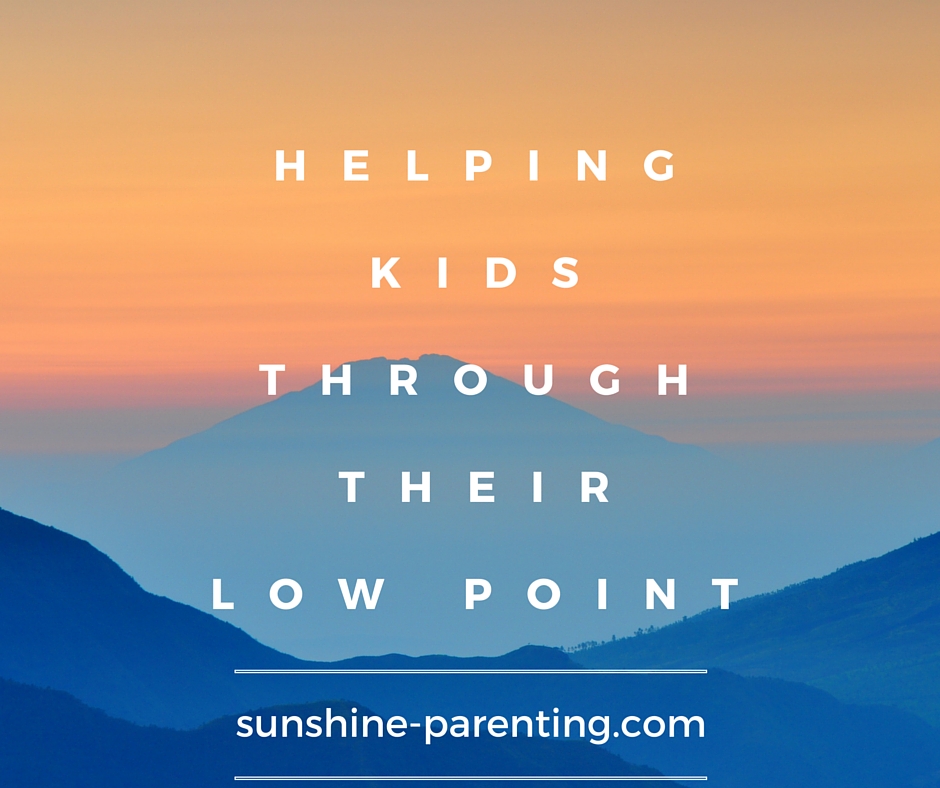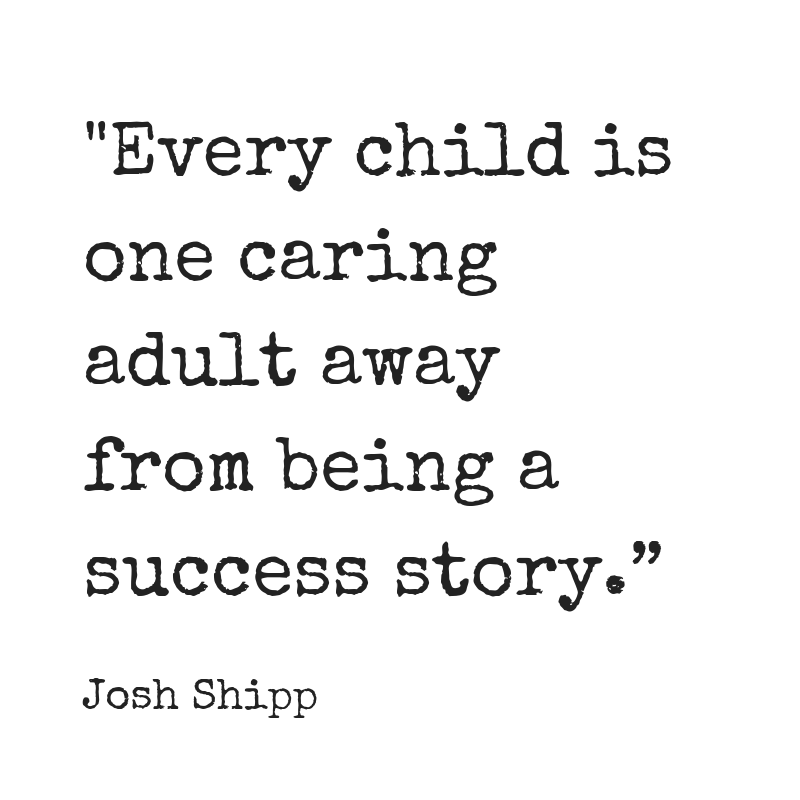Helping Kids through their “Low Point”
 During one of our final training sessions with counselors, we ask them to think back to their “low point” as a child or adolescent and remember what, if anything, caring adults did to help them through.
During one of our final training sessions with counselors, we ask them to think back to their “low point” as a child or adolescent and remember what, if anything, caring adults did to help them through.
It’s a great reminder to counselors to think about the developmental stage of the campers they’ll be working with and understand some of the struggles they may be facing. It also helps counselors see how they can be a supportive adult to the campers they work with this summer.
What is the “low point” for kids? My research thus far is limited to the 110 counselors I polled last week, but I think the results may well translate into the greater population. The majority of both our male (61%) and female (57%) counselors remembered ages 13-18 as their most challenging times developmentally. During that age range, they said they struggled with issues ranging from appearance and body image to popularity, unstable friendships, and lack of self-worth.
Other “low point” age ranges for some of our counselors included ages 10-12 and 19-25, with 23% of males reporting the older years (19-25) being their low point and 31% of females reporting ages 10-12 as being theirs.
No matter when that “low point” hits, what seems universal is that there are some times growing up that are more difficult than others.
There were things supportive adults said or did that helped our counselors through their “low points” growing up. I think it’s worth sharing their memories for other caring adults to know how they can best support kids during challenging times.
Here are tips for how parents, camp counselors, and other caring adults can be the adult who makes a difference and helps a young person through trying times:
“Took the time to talk. Spent time with me.”
“Listened to me.”
“Sent me encouraging messages, letter, and cards.”
“Affirmed that I was valuable and needed.”
“Remained positive yet acknowledged and empathized with my concerns and worries.”
“Validated me, built me up, and told me about what good others see in me. Pointed out my great inner qualities. Described how great a person I was without the need to look like the other kids. Pointed out my strengths.”
“Complimented my character and saw things in me that I didn’t see.”
“Helped me comprehend that my body is beautiful and amazing as it is.”
“Acted confident and goofy and encouraged me to be my goofy self. I learned that people gravitate toward happy and positive people.”
“Reminded me that being hard on myself creates unwanted negative self talk, and to cherish my individuality.”
“Talked me through the root of my problems, letting me be the decision maker.”
“Allowed me to be myself and put me into a position of leadership, which showed me that I could be respected and listened to regardless of what I thought about myself.”
“Encouraged my interests and hobbies.”
“Really checked in with me.”
“Shared their own experiences: described going through the same thing, suggested strategies for coping.”
“Made me feel not alone.”
“Helped me realize that I should be myself and not worry about what people think.”
“Listened to me and helped me find help.”
“Gave me tips about not being afraid to reach out to different friends and reminded me that everything would work itself out.”
“Emphasized that it was normal for me to feel this way and not to hide feelings but to let them out.”
“Reminded me of things to be thankful for.”
 As I read through these comments about things adults did that helped through “low points,” I was struck by how simple they are. And yet, sadly, some of our counselors reported not having any adult who helped them through. In fact, a majority of our male counselors reported not having one single adult who helped them through their low point. That made me really want to post this very simple list of ways each of us can possibly be that ONE person who helps.
As I read through these comments about things adults did that helped through “low points,” I was struck by how simple they are. And yet, sadly, some of our counselors reported not having any adult who helped them through. In fact, a majority of our male counselors reported not having one single adult who helped them through their low point. That made me really want to post this very simple list of ways each of us can possibly be that ONE person who helps.
We’ll never stop the difficult times from coming for our kids, but we can be there to help them navigate through the rough patches of growing up.
There are about a billion different ways you could have spent the last five minutes, and you spent them reading my post. Thank you! If you like Sunshine Parenting, please subscribe to get an email update each time I post (use box in right column). Follow me on Facebook, Pinterest, or Twitter for links to articles and ideas about camp and parenting. Have a happy day!
Resources/Related:
Celebrating Strengths
Questions for Connection
Connection before Correction
Focusing on Strengths
A Blueprint When Feeling Blue: How a Mental Health Diagnosis Can be Empowering
Childhood Depression: What Parents Can do to Help, healthychildren.org
Is Your Child Depressed? 6 Ways to Help them Cope, empoweringparents.com
How to Help Your Depressed Teenager, childmind.org
How to Support Children through Difficult Times, mentormaestro.com
